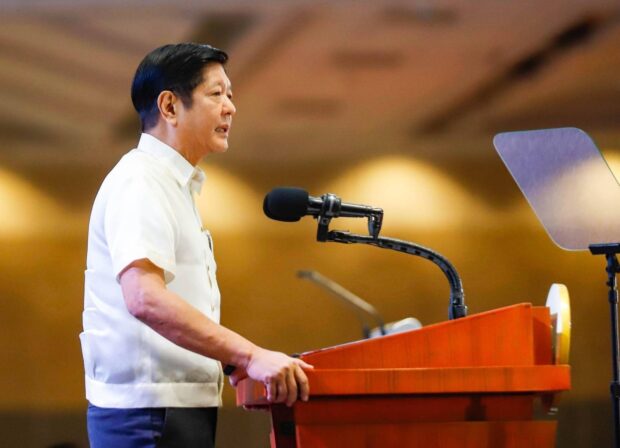
President Ferdinand Marcos Jr. | PHOTO: Official facebook page of Bongbong Marcos
MANILA, Philippines — The Legislative Executive Development Advisory Council (Ledac) session with President Ferdinand Marcos Jr. was postponed on Thursday in favor of holding separate meetings with warring senators and members of the House of Representatives
The lawmakers were supposed to sit down with the President for their regular Ledac meeting but this was postponed, according to Senate Majority Leader Joel Villanueva.
“Instead, we had an executive session with the President,” Villanueva said in a Viber message to Senate reporters.
The Ledac is composed of the President, selected members of the Cabinet, the House Speaker, and the Senate President, with the goal of advising the executive branch on economic policies.
He said also present in the meeting were Senate President Juan Miguel Zubiri, Senate President Pro Tempore Loren Legarda, Senators Imee Marcos, JV Ejercito, Grace Poe, Sherwin Gatchalian, and Mark Vilar
“After us, HOR naman,” Villanueva said, referring to their counterparts in the House.
The separate meetings happened amid the growing tension between the two chambers of Congress over Charter change (Cha-cha) proposals via a people’s initiative (PI).
It was also during a meeting with Marcos last January 11, when the Senate and House leaderships agreed to just limit the changes to the Constitution to certain economic provisions.
Despite this agreement, however, the PI continues prompting the Senate to temporarily halt its own Cha-cha resolution.
Several lawmakers, including Senate Minority Leader Aquilino “Koko” Pimentel, have already called on the President to intervene and settle the stand off between the two chambers.
READ: Senate, House clash over people’s initiative for Charter change
“The President should have nipped this in the bud pero lumaki na ng ganito (but it has escalated already),” Pimentel said in a press briefing at the Senate.
But “it’s not yet too late,” he said, as he looked forward to a productive Ledac meeting that did not happen.
Should the people’s initiative be successful, the Congress would be able to jointly vote on amending the 1987 constitution.
With over 200 lawmakers in the House, the 24 senators in the Upper Chamber would easily be outvoted.